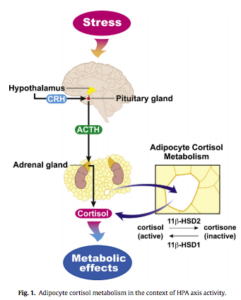Check out the NPR Interview & LA Times articles!
Last week, Dr. T, DiSH Collaborator Jeff Hunger, DiSH Lab Manager Jolene Nguyen-Cuu, and UCLA statistician Christine Wells published a really important paper in the International Journal of Obesity; as it turns out, one of the most common measures of population health, Body Mass Index (BMI), actually misclassifies millions of Americans as unhealthy when they’re not! In many cases, people had healthy measures of blood pressure, insulin resistance, triglycerides, cholesterol, and other factors, but fell into “overweight” or “obese” BMI categories and were therefore classified as “cardiometabolically unhealthy.” On the flip side, many Americans who fell into the “normal” BMI category were actually cardiometabolically unhealthy, even though they were assumed to be healthy based on their BMI.”
In Dr. T’s words: “There are healthy people who could be penalized based on a faulty health measure, while the unhealthy people of normal weight will fly under the radar and won’t get charged more for their health insurance. Employers, policymakers, and insurance companies should focus on actual health markers.”
Of course, BMI is popular because it’s so easy to obtain – all you need is a person’s height and weight! However, Dr. T. argues that getting a more accurate measure of cardiovascular health, like blood pressure, can be easy too, saying “it takes maybe 20 seconds if you have the machine. And so I really think focusing on better health markers like blood pressure is a better way to go about it — particularly when we’re talking about financial penalties.”
To U.S. News, Jeff Hunger explained that “the bigger picture we want to draw from our findings is that the dominant way of thinking about weight — that higher-weight individuals will always be unhealthy — is flawed,” and, that “the general public should try to focus on improving their health behaviors — eating well, staying active and getting enough sleep — and forget about the number on the scale.”
Ultimately, Dr. T emphasized that “we have this laser focus on weight, when this measure of body size doesn’t get under the skin of what healthy markers are. We need to focus on actual health markers, rather than this outdated, very broad measure called BMI.”
This paper has been picked up left & right by the media, check out some of its coverage here!
NPR Interview & Article
Los Angeles Times
Science Daily
U.S. News
UCLA Newsroom

